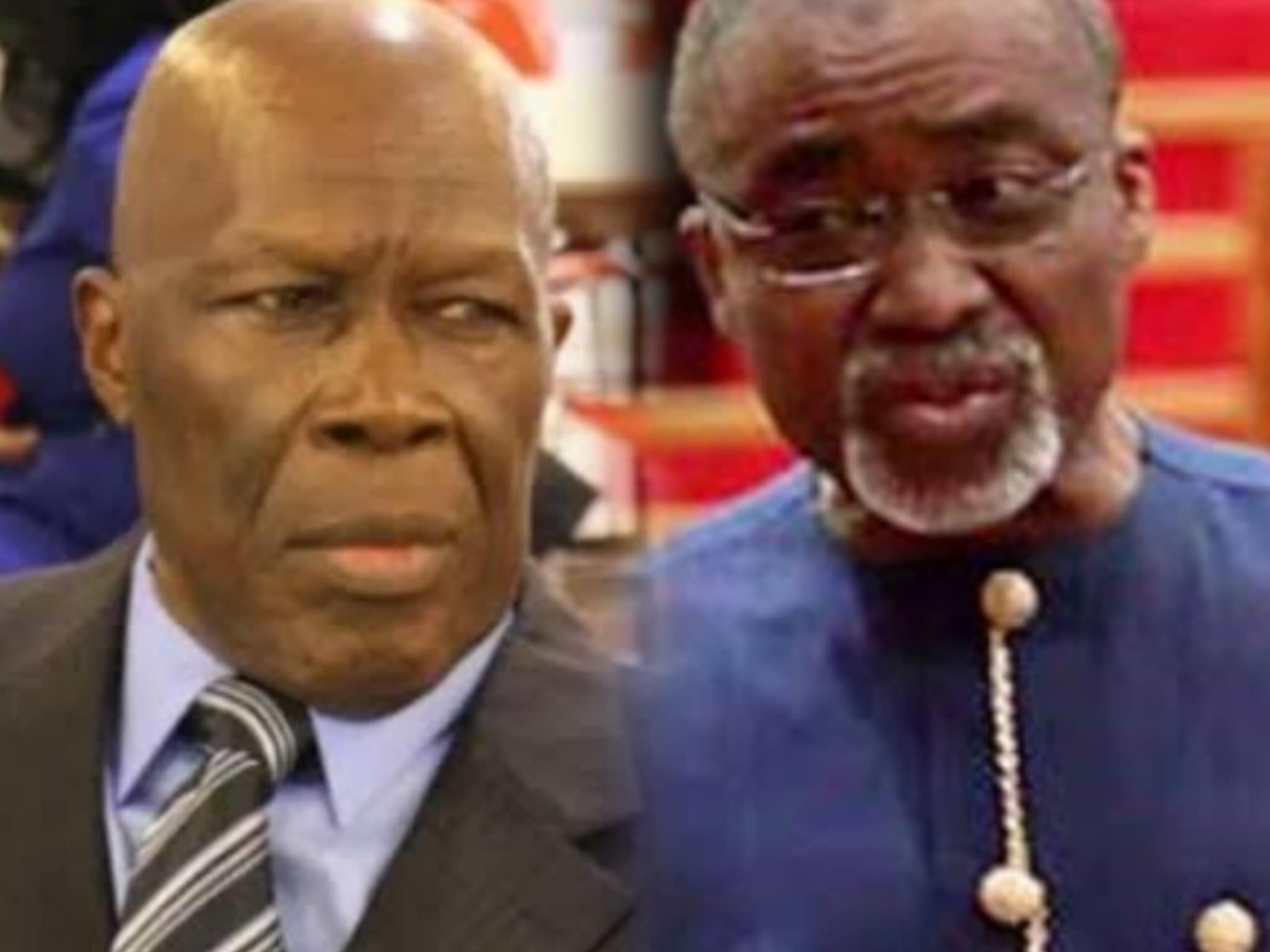NEWS
Why Abaribe Clashed With Deputy Senate President Over Motion To Immortalize Humphrey Nwosu

Why Abaribe Clashed With Deputy Senate President Over Motion To Immortalize Humphrey Nwosu
The Senate was thrown into chaos as senators clashed over a motion to immortalize the late Prof. Humphrey Nwosu, the architect of the historic June 12, 1993, election. While Abaribe pushed for recognition, Deputy Senate President Barau blocked the move, raising fears of legislative dictatorship. Read full details inside.

All Facts Newspaper – ABUJA – A heated clash erupted in the Senate on Wednesday as lawmakers sharply disagreed over a motion calling for the immortalization of the late Prof. Humphrey Nwosu, the former Chairman of the defunct National Electoral Commission (NEC) who oversaw the historic June 12, 1993, presidential election annulled by then-military ruler General Ibrahim Babangida.
The motion, raised by former Minority Leader Senator Enyinnaya Abaribe (APGA, Abia South), was met with stiff resistance, sparking a fiery exchange between senators over parliamentary procedures and the limits of legislative authority.
Why Did the Senate Reject the Motion?
The tension began when Abaribe attempted to introduce the motion under Senate Standing Orders 41, 52, and later Order 42, which allows senators to make personal explanations. However, Deputy Senate President Jibrin Barau (APC, Kano North), who presided over the session, refused to allow the motion, declaring it controversial.
Senate Leader Opeyemi Bamidele (APC, Ekiti Central) supported Barau’s decision, arguing that Abaribe’s motion came too late in the legislative schedule and that the order cited was not appropriate.
Fears of Senate Dictatorship
The rejection triggered a backlash from former Senate Leader Senator Yahaya Abdullahi (PDP, Kebbi North), who warned that the Senate was becoming dictatorial by silencing lawmakers. “We have been managing this Senate for a long time,” Abdullahi stated, emphasizing the need to allow free debate.
Abaribe also pushed back, declaring, “We are not under a dictatorship,” and insisted that his right to present the motion be respected. Citing Order 1(b), he argued that in cases where Senate rules are unclear, lawmakers have the discretion to regulate their procedures.
Despite his objections, Barau upheld the ruling, referencing Order 42, which states that personal explanations must be granted only with the indulgence of the Senate President and must not include controversial matters.
Bamidele suggested that Abaribe bring the motion on a later legislative day, a proposal that was ultimately accepted, deferring the decision on Nwosu’s immortalization.
Who Was Humphrey Nwosu? WATCH VIDEO
Prof. Humphrey Nwosu, who revolutionized Nigeria’s electoral system by introducing the Option A4 voting system and the Open Ballot process, passed away on October 24, 2024, in the United States at age 83. His family has announced that his burial will take place on March 28, 2025.
Born on October 2, 1941, in Ajalli, Orumba North Local Government Area of Anambra State, Humphrey Nwosu earned his Master’s and Doctoral degrees in Political Science from the University of California, Berkeley. Despite his groundbreaking contributions to Nigeria’s democratic process, the Senate remains divided on how best to honor his legacy.
As debates continue, the question remains: Will the Nigerian Senate find common ground to immortalize the man behind the most credible election in the nation’s history?

